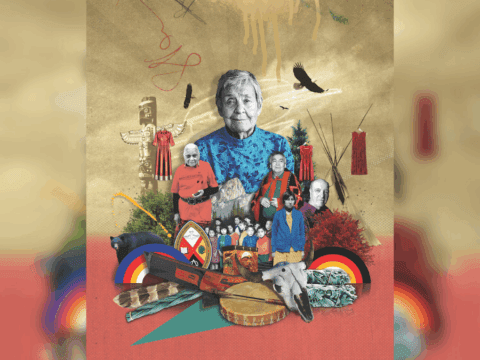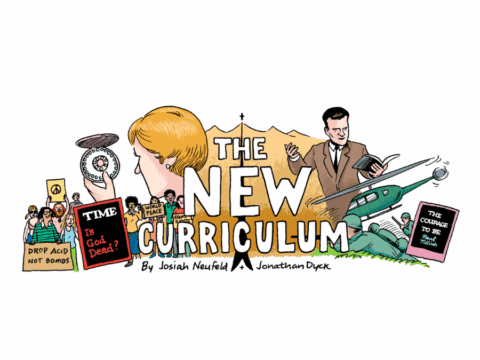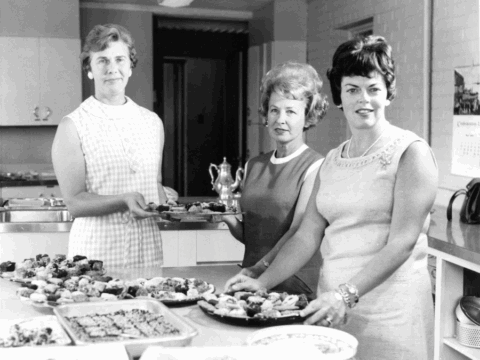It started with a compromise. One hundred years ago, three Christian denominations — Methodists, Congregationalists and most Presbyterians — along with members of the church union movement, came together to form the United Church.
Church union was more than a quarter century in the making, and its realization was a long way from guaranteed. But on June 10, 1925, before a gathering of more than 7,600 at the Mutual Street Arena in Toronto, The United Church of Canada was declared into being.
You may unsubscribe from any of our newsletters at any time.
“It was a solemn moment, the realization of our dreams and culmination of our efforts, and subdued applause swept through the entire assembly,” the church’s first moderator, Very Rev. George Pidgeon, wrote of the event 25 years later in The United Church Observer (predecessor to Broadview).
The United Church of Canada would never have existed unless each of the founding denominations agreed to let go of some cherished tradition, some notion of how things ought to be done. And it would never have taken root if each group hadn’t believed that diverse approaches to faith strengthen the whole body of Christ Compromise. The act of conceding one’s own interests to achieve a greater good.
More on Broadview:
-
United Church moderators reflect on the past, present and future
-
United Church unveils colourful photo reimagining ‘Last Supper’
-
United Church of Canada to debut new online hymn resource for 100th anniversary
The word struck a chord with me as we began to prepare this very special centenary keepsake issue. And in recent months, it’s begun to clang more loudly.
Like everyone, I’ve been watching orchestrated chaos unfold south of the border and the spectacularly uncompromising tactics of the American president. I’ve come to appreciate that compromise is not only at the heart of United Church culture, but also of Canadian culture.
I heard echoes of this culture on a Saturday evening in February, when then-Prime Minister Justin Trudeau appealed to the compromises that have made the Canada-U.S. relationship the “envy of the world….Yes, we’ve had our differences in the past, but we’ve always found a way to get past them.”
I heard it again, surprisingly, from the American head coach of the Canadian men’s national soccer team, Jesse Marsch, who said, “Unlike the polarized, disrespectful and often hate-fuelled climate in the U.S., Canada values fairness and unity. It’s a place…where people believe that their differences make them stronger.”
Want to read more from Broadview? Consider subscribing to one of our newsletters.
And so my clanging thought is this: the United Church wasn’t shepherded into being because one group overpowered another with economic force. This wasn’t the art of the deal, winners and losers, threats and fearmongering. None of the founding churches was unwillingly annexed.
As this publication’s editors wrote a century ago in their June 10 unsigned editorial, church union happened because the founding members understood “how much they possessed in common of the great essentials of a faith and how trifling were the things that divided them.” Uniting despite difference wasn’t just a “thing to be done,” they wrote. It was “an idea to be cherished.”
As Canadians, we know that compromise is a strength, not a weakness. The ability to find common ground amid difference is a cornerstone of civility and peace. Embracing partnership, honouring difference and bringing people together are our proudest values. And nothing worth creating can be made without them.
***
This article first appeared in Broadview’s June 2025 issue with the title “The Compromise.”
Jocelyn Bell is the editor and publisher of Broadview.
Thanks for reading!
Did you know Broadview is the only media organization in Canada dedicated to covering progressive Christian news and views?
We are also a registered charity and rely on subscriptions and tax-deductible donations to keep our trustworthy, independent and award-winning journalism alive.
Please help us continue to share stories that open minds, inspire meaningful action and foster a world of compassion. Don’t wait. We can’t do it without you.
Here are some ways you can support us:
Thank you so very much for your generous support! Together, we can make a difference.
Jocelyn Bell, Editor/Publisher, CEO and Trisha Elliott, Executive Director














“Along with members of the church union movement”. That phrase encompassed people representing hundreds of locations across Canada where Christian leaders had already organized congregations and built churches, hoping and praying that a denomination would decide to send a qualified minister.
My grandfather, a merchant and Gov’t Official in Echo Bay Ontario, inspired his town to build a church that stood without a function or a Minister for about 10 years before Church Union.